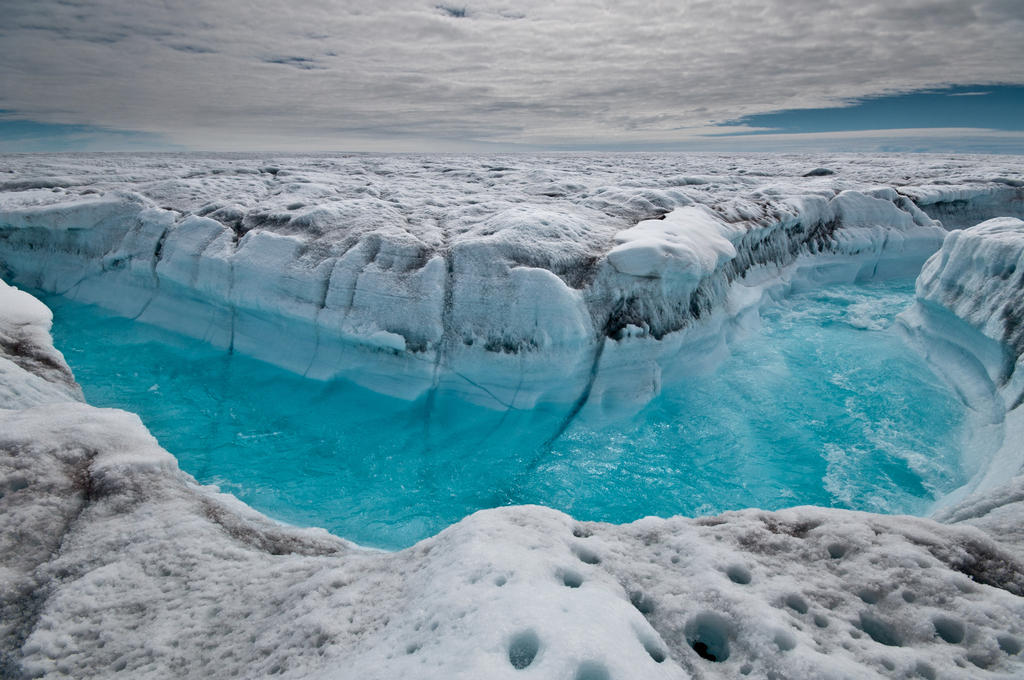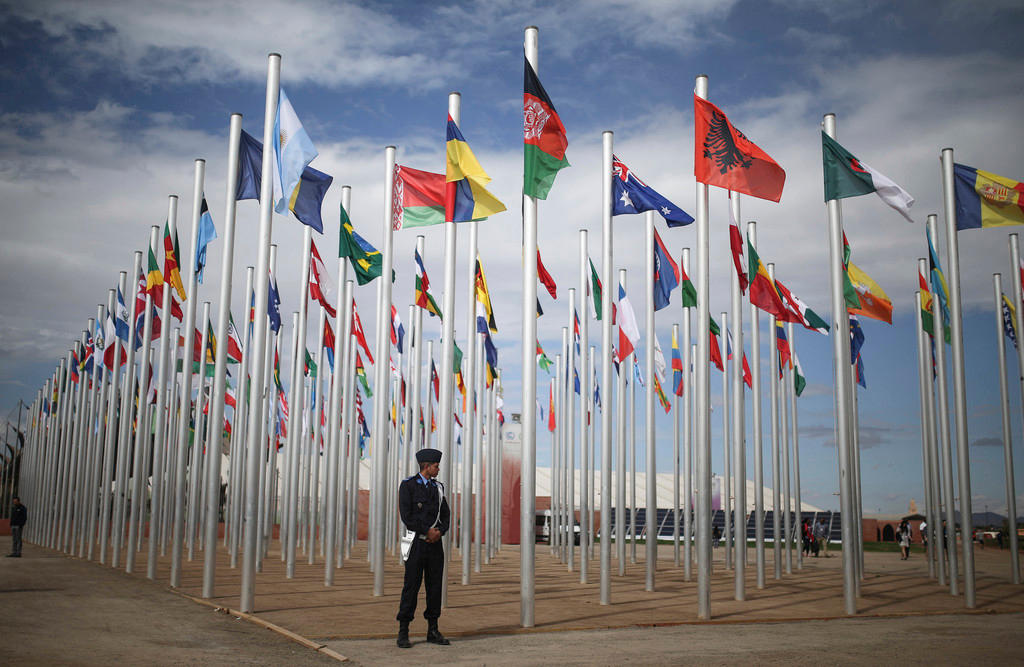Melting polar ice ‘directly threatens business profits’

“There are no jobs, no business opportunities and no profits to be made on a dead planet.” That was the message to business executives at this year’s World Economic Forum meeting in Davos, who were told their future business prospects could melt away as fast as the shrinking polar ice.
The quote comes from Christiana Figueres,External link who brokered the Paris climate accord in her former role at the United Nations. She delivered the message at the “Arctic BasecampExternal link”, an event held on the fringes of WEF to highlight the perils of global warming on the polar regions.
Figueres says she has lost faith in what she describes as the increasingly protectionist political world – reflected in the trade views of Donald Trump, the next president of the United States – to see the global climate accord through.
She called for expecting less from politicians and more from “people who can really make a difference: businesses, cities and investors”.
That is also the view of Konrad Steffen, director of the Swiss Federal Institute for Forest, Snow and Landscape ResearchExternal link. Moreover, it is an urgent situation, according to Steffen, who after witnessing Greenland lose a cubic kilometre of ice per day predicted there be no more summer sea ice around that country by 2050.
The threat of shrinking pack ice to polar bears is well known, but the risks to businesses are less apparent. Steffen says he wants to open the eyes of executives to this problem, and he is convinced that businesses – more than politicians – hold the key to reversing climate damage.
“I know many politicians, but I also know their schedules. They are packed and change all the time, so appointments with scientists more often than not fall through the cracks,” he told swissinfo.ch. “I have been telling the same climate story to the media for ten years. I now want to take influential business people to Greenland to see for it themselves.”
Climate refugees
Arctic Basecamp offered incentives for the corporate world to take such trips. Melting polar regions are increasingly affecting transport routes for goods traded around the world, said Al GoreExternal link, the former US vice president whose climate change activism earned him the Nobel Peace Prize in 2007 along with the United Nations expert panel of climate scientists.
Evaporating ice affects weather patterns, creating cycles of flood and drought that play havoc with agricultural productivity. This in turn could lead to “millions” of climate refugees adding further political, social and economic instability in the world, he argued.
The impact of global warming reaches closer to home for the Swiss in what Steffen terms the “third polar region” – the Alps. Research shows that if temperatures continue rising at their current rate, 90% of Switzerland’s glaciers will be lost by the end of the century. Even under the minimum goals of the Paris agreement, three quarters of Swiss glaciers will be gone.
“The changes we are seeing in the artic regions are also happening in the Alps,” he said. “Swiss glaciers are retreating at a faster rate than in Greenland, leaving behind rubble fields in their wake.”
Green profits
Nevertheless, there is another side to the story. Companies that become engaged in “climate-friendly” business can increase their profits, according to a WEF report. Ten years ago, the cost of generating solar power was six times as high as coal or gas, it states. Now, costs are on a parity. The cost of wind turbines has dropped 30% in the last three years, it added.
The green industry of creating new technology and renovating energy inefficient buildings and transport promises to be “exactly what the economic doctor ordered” for reviving a flagging global economy, said Gore during his Arctic Basecamp presentation.
Redressing climate problems will create jobs, but only in countries that take their environmental responsibilities seriously, according to Figueres. She said she is “hugely concerned” at the incoming Trump administration in the United States.
She urged the US government to match China’s investment commitments in renewable energy projects, particularly the large-scale production of zero emission cars. “I am concerned for the US economy,” she said. “If the US walks out on (the) global effort (to tackle climate change), it will miss out on a huge job creation opportunity. Jobs are being created in new technologies and new energies.”
The Arctic Basecamp was set up at the Institute for Snow and Avalanche Research (SLF) in Davos and ran alongside WEF’s annual meeting. It was a joint collaboration between the Swiss Federal Institute for Forest, Snow and Landscape Research, Lancaster University in Britain and the British Antarctic Survey.
It sought to raise awareness among business leaders attending Davos of the dangers to the polar regions from global warming. Several leading climate scientists attended the event, along with Gore and Figueres, the former executive secretary to the UN Framework Convention on Climate Change.
Several participants spent their stay in Davos inside tents erected on the SLF grounds.

In compliance with the JTI standards
More: SWI swissinfo.ch certified by the Journalism Trust Initiative











You can find an overview of ongoing debates with our journalists here . Please join us!
If you want to start a conversation about a topic raised in this article or want to report factual errors, email us at english@swissinfo.ch.